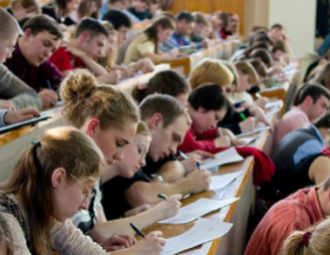Office’s specialists have prepared proposals on amendments to the Education Code

On December 4 the parliament hearings on amendments and supplements to the Education Code were held in Minsk. Office for the Rights of People with Disabilities prepared its proposals on the issue.
There is a possibility that the next year the Education Code will be amended. It will be done after holding the monitoring based on the existing problems in this sphere, Office for the Rights of People with Disabilities recalls.
The Office’s specialists have many times emphasized that it is very important that NGOs should take part in working out draft laws, any state programs, including those for persons with disabilities. It will help to make draft laws really work and to be capable of solving concrete problems.
Office’s lawyers have prepared concrete recommendations concerning the Code. For example, they propose to introduce to the document several terms, such as “inclusion”, “discrimination”. On one hand it will help to “prepare” the national legislation for the fundamental principles of the Convention on the rights of persons with disabilities, on the other hand – to make education for persons with disabilities more accessible what today is rather difficult because of different reasons.
Inclusion in education helps to effectively organize the process of education for kids with special needs in common educational establishments. Inclusion means that education is accessible for all. Today in Belarusian legislation we have the system of integrated education which is based on creation of special conditions for persons with disabilities in the frames of common system of education. Inclusion means the creation of educational system for all the pupils in accordance with the needs of all them, but not only for children with the peculiarities of development and disabilities, and the provision by the society of possibilities for full realization of the needs of this category of citizens. Inclusion gives a possibility to exclude any kind of discrimination of pupils, but at the same time creates special conditions for children having special educational needs. This theory admits that all children can study and their peculiarities should be respected but not to be a subject for stigmatization.
It is supposed that amendments would promote the provision of the education’s accessibility including for persons with the peculiarities of development and disability at all the levels of basic middle education and while getting extra education.
You can get acquainted with the proposals of the Office’s specialists here.
-
03.01
-
07.10
-
22.09
-
17.08
-
12.08
-
30.09



























